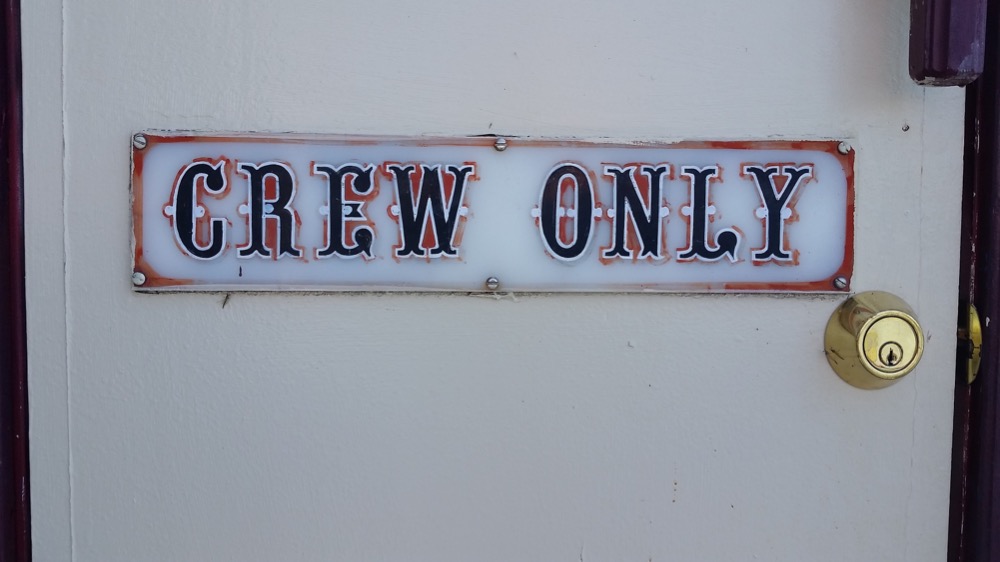Crew longevity
Is there any benefit for a yacht by having a crewmember on board for a short period of time?
Captain Neal Roche suggests ways in which both sides can help to address the perennial problem of crew longevity.
Every yacht wants the best crew, happy and motivated to work, staying on board for a considerable time. And if the crew arrive fully certificated to the highest level, well that’s a bonus.
The reality is, I’m afraid, quite different; even for those yachts deemed to be ‘good’ to work on, crew movements will inevitably occur for many reasons. These include money, leave, the yacht’s schedule, whether or not it charters, crew dynamic, how personable the captain/management are, career progression or simply that an individual has come to the end of their time in yachting.
While plenty of stories abound in the industry about awful boats and disastrous crew, the reality lies somewhere in between. The unfortunate truth is that there are yachts with difficult owners, dictatorial captains and various other factors that can make it a difficult place to work for any crewmember. However, anybody involved in recruitment will tell you there is an obvious lack of crew longevity, which could be deemed as being two years or more spent on a single yacht. Given the sheer number of yachts out there, it’s difficult to believe this issue is solely related to yachts with dubious records; crew are clearly jumping from boat to boat on an all too regular basis, which brings us to the inevitable question – why?
In many cases, a crewmember will seek a move due to the reasons outlined above and many more, but one factor not stressed enough to crew is that if they reach the milestone of one year on board a yacht, and then the two-year point of longevity, this will set them apart from the majority of candidates being considered for an open role. To put it bluntly, the boat should have to be insufferable for a crewmember to feel the need to leave within the first year. While they may feel that moving for more money or a better rotational-leave ratio is a good option, such a decision will simply dilute their CV to the point where it does not stand out from the crowd, and they become just one more person with some yachting experience searching for the perfect job.
The reality is that the perfect boat is already fully crewed, and that those on board got there by making themselves the most attractive candidate possible. They have built up decent periods of time on a boat by appreciating that a full-time position is often more advantageous than a rotational contract, particularly in the early stages of a career. This not only makes their overall CV look better, but also accumulates sea time for courses at a faster rate than is possible on a rotational contract.
From the owner’s and management’s perspective, they must realise that the days when a candidate jumped at the chance of a position and were ever so grateful for it are well and truly over. Once one boat offers rotation, study leave or other perks, other yachts engaged in the recruitment process must look to follow suit.
“From the owner’s and management’s perspective, they must realise that the days when a candidate jumped at the chance of a position and were ever so grateful for it are well and truly over.”
Crew should be regarded as an investment, and although it can be frustrating when a crewmember takes any number of courses at the yacht’s expense and then jumps ship, study options for all departments (including interior) should now be the norm. In shoreside industries, Continuing Professional Development is provided as a matter of course, and in the yachting industry, if managed correctly, it is the best means to entice crew to remain for longer periods, to the benefit of all parties.
The benefits provided by the yachting industry through salary, travel and rotational contracts, as well as ancillary perks, should be seen as factors that motivate crew to stay rather than a bargaining tool to constantly search out better conditions. A CV should be treated as an investment, and as such should be managed in such a way that it offers the best reflection of the individual.
The CV is generally the only thing that offers a prospective employer a snapshot of the candidate for that brief moment when they are in the mix with other candidates for a position. The best way to ensure the CV isn’t filed in the wastepaper bin is to have a proven record of remaining on board a yacht – and if it is on a yacht notorious for excessive crew movement, then so much the better.
Equally, if a yacht has what is deemed to be excessive crew turnover, i.e. more than 30 per cent of the total crew annually, they should ask themselves why and seek to change their management structure or practices, rather than blame fickle crew.
There are too many stories of owners opting out of yachting altogether through disillusion from crew-related issues; longevity of crew is a benefit for all involved.
NEW: Sign up for SuperyachtNewsweek!
Get the latest weekly news, in-depth reports, intelligence, and strategic insights, delivered directly from The Superyacht Group's editors and market analysts.
Stay at the forefront of the superyacht industry with SuperyachtNewsweek
Click here to become part of The Superyacht Group community, and join us in our mission to make this industry accessible to all, and prosperous for the long-term. We are offering access to the superyacht industry’s most comprehensive and longstanding archive of business-critical information, as well as a comprehensive, real-time superyacht fleet database, for just £10 per month, because we are One Industry with One Mission. Sign up here.
Related news

Crew welfare issues
Crew were surveyed about welfare issues, identifying key areas where the industry could improve crew well-being
Crew
Related news
Crew welfare issues
6 years ago
NEW: Sign up for
SuperyachtNewsweek!
Get the latest weekly news, in-depth reports, intelligence, and strategic insights, delivered directly from The Superyacht Group's editors and market analysts.
Stay at the forefront of the superyacht industry with SuperyachtNewsweek




